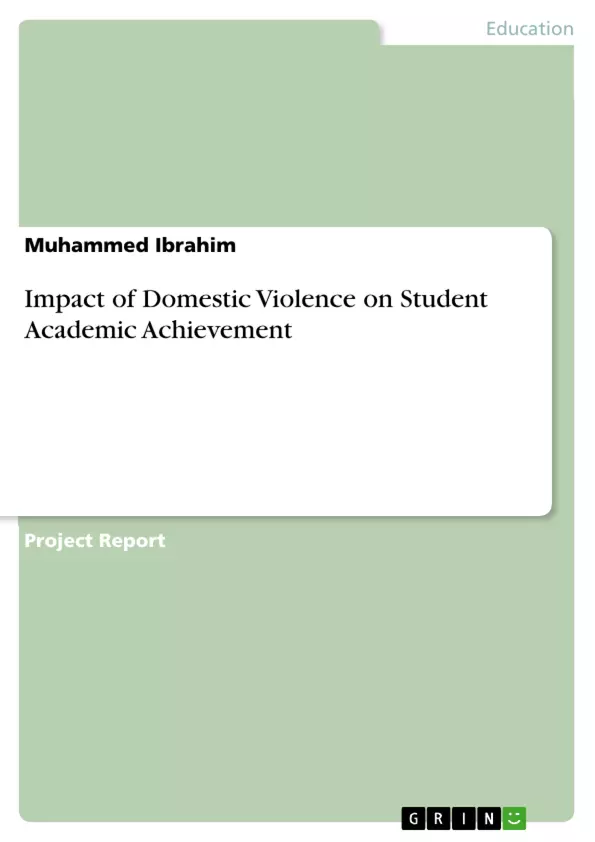The broad objective of this study is to examine domestic violence as predictors of secondary school students’ poor performance in Obafemi Owode Local government.
The specific objectives of the study include, examining:
- The influence of domestic violence on students’ school attendance in secondary schools in Nigeria;
- The influence of domestic violence on academic achievement of students’ in secondary schools in Nigeria;
- The influence of domestic violence on school behavioural patterns of students’ in secondary schools in Nigeria
Table of Contents
- 1.0 INTRODUCTION
- CHAPTER ONE
- I.1 BACKGROUND
Objectives and Key Themes
This research aims to explore the impact of domestic violence on children's academic performance and school participation in Nigeria. It examines the multifaceted nature of domestic violence and its far-reaching consequences on children's psychological, emotional, and cognitive well-being.
- The relationship between domestic violence and children's academic performance
- The psychological and social impacts of domestic violence on children
- The role of family dynamics and socio-economic factors in shaping children's educational outcomes
- The prevalence and nature of domestic violence in Nigerian families
- The need for interventions and support services for children affected by domestic violence
Chapter Summaries
Chapter one delves into the background of domestic violence and its influence on children's school participation and academic performance. It establishes a connection between the physical and psychological state of children and their experiences of domestic violence within their families. The chapter explores the various manifestations of domestic violence, including physical abuse, sexual abuse, and psychological abuse, and their impact on children's well-being and educational attainment. It also emphasizes the hidden nature of domestic violence and the difficulties in accurately measuring its prevalence.
Keywords
Domestic violence, child abuse, academic performance, school participation, psychological impact, social impact, family dynamics, Nigerian families, intervention strategies, support services.
- Quote paper
- Muhammed Ibrahim (Author), 2019, Impact of Domestic Violence on Student Academic Achievement, Munich, GRIN Verlag, https://www.grin.com/document/477591



